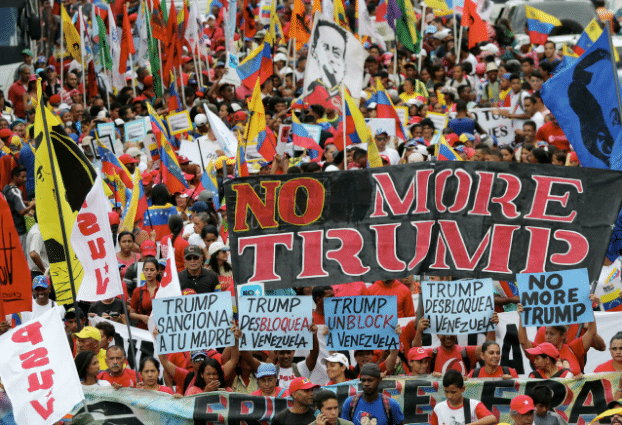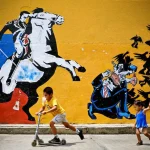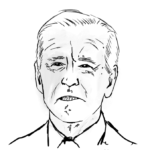
By Maria Páez Victor – Jan 5, 2022
The end of the year 2021 has come and as customary, we reflect upon what we have lived during it.
Pandemic
First to be considered is the pandemic. We thought that with the roll out of the vaccines we would see the ebbing of the epidemic. But it has not been so.
• The USA continues to be the epicenter of the pandemic with 167,302 cases per million, and 2,537 deaths per million.
• It is followed in severity by India, Brazil, Great Britain, Russia, Turkey, France, Germany, Iran, Spain and Italy.
• Canada is number #27 in that scale with 58,946 cases per million and 794 deaths per million. (1)
Venezuela – maligned, insulted, marginalized, demonized by media and imperial powers- is very low in that infection scale, at number #71 with only 15,710 cases per million and only 188 deaths per million. Let us examine how such positive results have occurred in Venezuela.
The Omicron Covid-19 variant has arrived like a tsunami. The numbers and swiftness with these people being contaminated is astonishing. Omicron infects 70 times faster than the other variants. The USA broke its daily case record on Jan.1st with 386,920 cases in a day, and France had a record of +200,000 infected in one day. (2) (Four days later, on Jan. 5th NBC news reported the USA hit a milestone record of 1 million omicron cases in a single day.)
But first of all, we must look at the political and economic roots of this pandemic.
The rich countries cling to the savage capitalism of today, refusing to give poorer countries access to vaccines, nor have they helped them produce vaccines themselves. Only 9% of Africans have been fully vaccinated according to the WHO. Just under one half of the countries in that continent have managed to fully vaccinate more than 10% of its population. (3) Less than 1% of the people in low- income countries of the Global South are fully vaccinated. One reason is that the wealthy countries have purchased enough doses to cover their populations several times over. (4)
RELATED CONTENT: President Maduro: Venezuela has Displayed Exemplary Control of the Pandemic
Many have denounced this grave situation, which is a monumental mistake in terms of science and what it tells us of how viruses reproduce and spread among populations. It is a monumental political mistake because nations will not easily forget that in the moments of grave danger for their people, the capitalist world preferred its own multimillion earnings and ownership patents, to helping them.
If the medical people who developed the vaccines against rabies, smallpox, polio, or the medicines of insulin and penicillin, would have acted like this, we would still be battling those terrible diseases, but they gave their life-giving discoveries to humanity without prioritizing their own profits.
Pope Francis had denounced this situation as a grave moral failing of the rich Western countries.
Venezuela, managed to have vaccines due to the invaluable solidarity of Cuba, China and Russia, nations which from the very start of the pandemic helped it with masks, medical equipment, medicines and later with the vaccines Sputnik, Sinopharm and the Cuban vaccine Abdala. Venezuela was also able to buy some vaccines through the UN COVAX mechanism, but it cost them, not just in funds, but in struggle as the USA lobbied so that Venezuela would not get vaccines, even if they paid for them. And very soon production of the Abdala vaccine will start in the country with the help of Cuba. With the help of Cuba, Russia and China, and now the U.N. COVAX, Venezuela has been able to fully vaccinate 91% of its population. (Jan. 4, 2021)
Venezuelan regional and municipal elections of 21 November 2021.
This mega-election of governors and municipal mayors and councillors took place in order and peace, with more than 300 international observers on site. The Government coalition obtained 19 governorships, and the various oppositions 3; the government obtained 205 municipalities and the opposition 96. It was a great triumph for the government that obtained a resounding political backing even in these moments when the country is suffering from the illegal and unjust economic sanctions of the USA and its allies. Few, if any, other democratic governments would have survived with such popular support in such economic circumstances.
It was, above all, a triumph of the people, the good peace-loving people, that do not want more coups d’etat, more street violence from a treasonous and violent opposition. The Venezuelan people want a return to normal politics, to the normal political game that respects institutions and democracy. At last the various oppositions have come to their senses, and just by participating in the elections have recognized the legitimate government of the country and its legitimate president Nicolás Maduro.
The tragic-comedy is that the USA, instead of recognizing that their snare to launch a nobody as president, the disreputable Juan Guaido, continues with the fiction that is only valid in the mental and political labyrinth of the corrupt government of the USA.
How is it that the government of Venezuela with its Bolivarian Revolution, has survived, and is now, despite everything, on the road to obvious recuperation?
One clue, which sets the stage, is what President Hugo Chávez said at his second inauguration:
“It is impossible to obtain the greatest degree of happiness for a people in the framework of the capitalist system; it is only possible through socialism, through the daily construction of the permanent, endogenous, deep and sincere, Venezuelan socialism.” (7 January 2007)
The Bolivarian revolution has carried out a profound social change in Venezuela. I do not refer to its militants, to the convinced “chavistas” that always back the revolution. If it were only that, if the revolution affected only its partisans, then really it would not be a revolution at all, only a party like any other.
Since life has taken me down roads far from my homeland for many decades, I have had the opportunity to see Venezuela from a different perspective every time I visit there, almost yearly. I have been able to take mental photos of this transformation of daily life, seeing perhaps the changes that those who live it may not be fully aware of their relevance.
For example, a few days ago, I watched a very nice video that a Venezuelan who lives in Miami, took. He returned to Caracas and took this video of the beautiful Christmas lights and decorations in the capital. I was struck by his comments. He kept saying how surprised he was that he could walk in the centre of the city with a camera and no one has stolen it from him, that he has not been assaulted and robbed. He looked around amazed at people, entire families, strolling at night in the plazas without any fear. Then I realized this young man has not visited Caracas in many, many years because this is a common occurrence that citizens go out to the plazas in the centre even in the evening. I have gone to Venezuela almost every year, and always visit the city centre alone or with my sisters, to enjoy the city. We do not feel any particular danger, it is like walking in any other city. It’s not that there are no robberies at all, but certainly it is not constant as this young man feared. And the truth is that the revolution also arrived in Caracas and the cities, where spontaneously policemen and policewomen help you cross the street. These are not like the police before the revolution whom one was as afraid of as of the thieves.
The attitude towards the elderly is incredibly notable. I have seen how the elderly in my family as soon as they enter a shop, a bank, an office, someone comes to usher them to the head of the lineup, to the office they are looking for, or just to a chair. This did not happen before. The elderly in Venezuela have pensions and they are given much respect.
I have seen how the Bolivarian revolution extends towards animals. The organization Misión Nevado (Nevado was the name of Simon Bolivar’s beloved dog), gives free veterinary services, teaches pet owners how to make nutritious and cheap pet food at home so they do not have to buy it. I have seen how the wealthy – who used to be untouchable- are severely fined for hunting wild protected animals. I have seen nurseries of turtles and alligators, how there is a vibrant interest in protecting nature, flora and fauna. None of this is “political” in themselves, but it is Bolivarian.
How have these social changes occurred?
Firstly, because of education, which is free, accessible. Venezuelans are not an illiterate people, but one in which thousands are studying at some level. Even during these bad economic times, the yearly Book Fair is packed, and people buy and read books.
Secondly because the population is not an agglomeration of lone individuals. The variety and amount of social organizations, collectives, and groups is impressive. Starting with the Communal Councils and Communes which apart from representing local issues, have their own legal status, budgets, and voice within the system of governance. Because the workers unions are promoted, not condemned, and they continue with their efforts to protect their rights without any bias against them. Because of the collectives of all sorts, of women, youth, handicapped, environmentalists, etc. As well the indigenous peoples and their organizations are recognized and respected. Because there is a concerted effort to make sure there are no marginalized people, and to help that are the “misiones”, or anti-poverty initiatives. The government has dedicated whatever monies it has had so that despite this economic war the misiones do not fail.
For example, during the pandemic, the boxes of subsidized food which are distributed twice a month, now are filled with products all made in the country, not imported. They are distributed by a system of volunteers who take them to people’s homes or a designated accessible place. One of my elderly sisters who lives alone, not only has the box delivered to her but has even been offered to receive food already cooked if she wished. None of this occurred before the Bolivarian Revolution.
Another example: a few years ago, we were in Caracas awaiting the arrival of a Canadian professor who did not speak a word of Spanish. We became alarmed because it was already near midnight, we knew his plane had landed, but he had not arrived at the hotel. Just as we were going to call the authorities, he arrived in a taxi. There had been a mix-up as to time and place, and the taxi driver, who spoke not a word of English, not wanting to leave him alone, took him to his humble home where the professor had dinner with his family. Then, making a guess as to the hotel he should go, the taxi driver brought him back safe and sound. He asked for no money. As I was thanking him, he said to me:” “No need to thank me. How could I leave this foreign gentleman alone? He might think badly of us Venezuelans as the newspapers all over the world accused us of so much?”
And during the huge blackout two years ago when a criminal USA cyberattack cut the electricity of the entire nation during five terrifying days when one even did not know if it was a prelude to a military attack as the USA was threatening at that time, there were no riots, no looting, no street violence of any kind. Neighbors got together to help each other, the young would carry water and food to the elderly in the top floor of buildings as the elevators could not function. Those who had radios would get together with those that did not on their streets so that they could listen to the National Radio Station that managed to keep broadcasting. Neighbors would put together their foodstuff, cook and then distribute the food. My eyes fill with tears of emotion every time I hear of events like these of which there were thousands, examples of great solidarity of the people. There was no party or government official telling them what to do, these efforts sprung from their souls, of educated, conscious, and humanitarian, and revolutionary people. They are not imbued with the ideology of individualistic, materialistic, “me first” mentality that societies submerged in savage capitalism promote.
And during the pandemic, Venezuela has one of the best records in the region, even better than many rich countries. The government has followed to the letter the best medical advice, has promoted masks, social distancing, tracing, cancelled flights, promoted quarantine, massive tests, home medical visits, and great medical control on the borders. All the efforts of the public health authorities are backed by organizations and collectives. There are no protest movements against vaccines or restrictions like there are in Europe and USA, on the contrary, people want vaccines.
This brings me to the last message for this year. I am reading a book I highly recommend, “Humankind” by the Dutch historian Rutger Bregman. Bregman relates that Hitler was convinced that by bombing London in 1940 there would ensue large riots, that the English people would become demoralized, even go mad, mentally incapable, and then surrender. Even Churchill feared that this would happen. During nine months 80,000 bombs were dropped on London. Both men were wrong. They did not count on the spirit of cooperation and solidarity of the English people who continued their daily life as best they could, determined that the bombs were not going to interrupt it.
The English then terribly bombed German cities, and the result was the same. The bombs were not efficient, they did not make people surrender. The Germans helped each other, put out fires, helped those who were left without homes, and the wounded. After the war, psychiatrists studied the effects of bombing in both England and Germany and confirmed the results: there was no mental imbalance of the population, no panic or social violence, or mass suicides, the citizenry of both nations got together to help each other in the moments of these catastrophes.
Bregman concludes that, contrary what is generally thought, that populations become savages without the elements of “civilization”, that it is a savage world, humanity in fact is not like that, and it is proven by almost all the branches of science, by the process of evolution itself, and confirmed in daily life, that people are, fundamentally, good.
The Disaster Research Centre of the University of Delaware carried out more than 700 investigations of disasters and has emphatically concluded that during catastrophes there is no panic or chaos, that people become filled with a serenity that drives them to act and help their neighbor. A type of general altruism occurs that leads them to give freely and massively and share with others. (5)
RELATED CONTENT: Venezuela Responds to New Interventionist Statement by US
In short, Bregman says that “Catastrophes bring out the best in people. I know of no other sociological finding that’s backed by so much solid evidence that’s so blithely ignored. The picture we’re fed by the media is consistently the opposite of what happens when disaster strikes.” (6) It is not true that we are savages, that is the vision of the human being of the capitalist ideology. Its fundamentalist individualism wants us to think, like Margaret Thatcher, that “there is no such thing as society”, it is every man for himself. And it is wrong.
The Bolivarian Revolution has distinguished itself from the very start as a socialist, deeply democratic and humanist revolution. During these years of suffering due to the vile attacks of the USA, Canada and Europe, we have seen up close how Venezuelans have not thrown themselves into violence or in attacking their own government. It has shown solidarity towards those who are defending it, the government of President Nicolás Maduro. The USA illegal sanctions have failed, they have not managed to overthrow the legitimate government of the country.
Proof of its survival is the rebirth of a new Venezuela, filled with the values of solidarity, humanism, Christianity and socialism and brotherhood, and during the disaster of the criminal sanctions against it, that humanity and solidarity, that Bolivarianism, has shone.
Let us be filled with faith and hope for the new year.
Notes:
1. Worldometer, 2 January 2022, https://www.worldometers.info/coronavirus/
2. New York Times, , “Covid News: US Daily Record for Cases is Broken”,1 January 2022; Global News, “France reports record high of 208,000 Covid-19 cases in one day”, https://globalnews.ca/news/8477994/france-daily-record-covid-cases/
3. Peter Mwai, “Covid-19 vaccinations: African nations miss WHO target”, BBC, 31 Dec. 2021, https://www.bbc.com/news/56100076
4. Amy Maxmen, “The Fight to Manufacture Covid Vaccines in Lower-Income Countries”, NATURE, https://www.nature.com/articles/d41586-021-02383-z
5. Rutger Bregman, “Humankind – a Hopeful History”,Little, Brown & Co, 2019
6. Rutger Bregmna, op. cit, p. 6
This article is based on the 30 Dec, 2021, radio program Venezuela Viva, at Radio Voces Latinas, Toronto, CHHA 1610 AM, also at ustream.tv/channel/chha-tx
Featured image: Supporters of President Nicolás Maduro, at a demonstration against US sanctions against Venezuelans, in Caracas, on August 10, 2019. Manaure Quintero / Reuters.
MPV/OT

Maria Paez Victor
María Páez Victor, Ph.D. is a Venezuelan born sociologist living in Canada.
- July 21, 2024
- April 24, 2024




